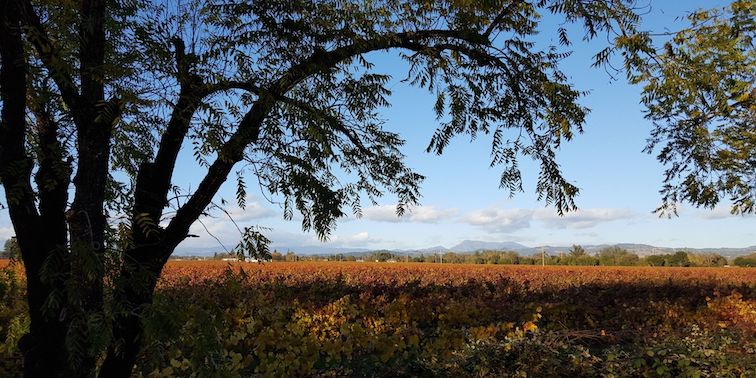Terroir is a wine concept that is on the lips of all wine lovers. It is one of the most fascinating but perhaps least understood topics in the world of wine. Let's see what it is exactly, also because it is a decidedly chic topic of conversation.
What exactly is terroir? Let's see it together.
The timeline, before we start. The word appears as early as the 12th century (written in various ways: tieroer , terroier ... substantially understood as a synonym for soil or earth) but was soon forgotten, only to re-emerge with Foucault in the mid-twentieth century. Today there is a lot of talk about it because the louder the calls against globalization have been in recent years, the more food, crops, plants and land as such have become an emblem of specificity and resistance.
Terroir: what does it mean?
The concept of terroir brings together all the factors that influence the wine that will enter your glass, active factors from the vineyard to the cellar.
And therefore: the soil on which the vine grows, the climate , the type of vine , the exposure and the shape of the slope , but also the winemaker who made it, with his ideas and his sensitivity as well as with the his technique...
Terroir: in Italian?
The legendary Luigi Veronelli envied the French the word terroir, which he translated into Italian as land. He said, “earth is like man, there are no terms - either alternative or similar - for improvement ”.
Here's why it's such a trendy topic among wine lovers, and why we think you should talk about terroir at dinner
- Because the components that determine the characteristics of the wine, all together, identify a unique environment and the magic of wine is defined in the name of this uniqueness. First of all we talk about quality.
- Because the relationship between territory and wine is ancient , if you consider that wine has designed the landscape since before Christ. The story has infinite charm.
- Because it is a widespread concept but it always has a great effect to use it properly. It's not for everyone.
- And then it's pronounced “ terruar ,” which is a great sound. For those who love the sound of words.
- Because it indicates the search for quality, a theme that unites people and knows no barriers. Quality shared between interlocutors.
- And here we are talking about non-transferable uniqueness , which is an even higher aspiration. For true connoisseurs.
- Because knowing what terroir is means knowing that the quality of a product is linked to a specific environment , which for this reason alone deserves to be recognized and valued. It can therefore cross over into a passion for travel.
- And in fact it directly influences wine, but also all the products of the earth . In fact, the concept also applies to fruit, vegetables, olive oil, coffee, cocoa... Talking about terroir for fruit and vegetables: a real gem.
- Because when you put the landscape, the climate, the soil, the vineyard, the history and the work of man all together in one word, the conversation can only become wonderful. From terroir to Kant is a moment.
- Because we can also talk about it in mathematical terms: a triangle (vine variety-environment-man ) on whose interaction of the angles the quality and typicality of a wine depend. Long live geometry.
- Because it is a broad topic : it gives arguments for hours.
- Because it is an immaterial and multifaceted concept , but real and alive in quality products. It brings together dreamers and pragmatists.
- Because it concerns the interactions between a specific physical and biological environment and the viticultural practices that are applied to it. It appeals to people who are passionate about science.
- Because it also concerns the geology and morphology of the soil, bioclimatic, chemical and physical characteristics, it provides arguments for even the most obstinate scientists . To really keep everyone inside.
- Because it is a concept that concerns an origin and a tradition, but a tradition susceptible to transformations . A memory that changes as time passes: a nice concept even for the most sophisticated people.
- Along the same lines: the efforts of winemakers are like those of enlightened interpreters, who, in respecting the "old" methods , rediscover traditions by claiming their inventiveness . Then wine becomes an ally of cultural memory and, at the same time, a viaticum for the future. Tradition and innovation.
- Because it is a concept that includes wine in the space of authenticity and well-being, without losing any of the pleasure it gives. How can you not like it?
Do you want to discover unique wines from niche wineries?
Discover our personalized subscription!
Wine is a compound of mood and light - Galileo Galilei




